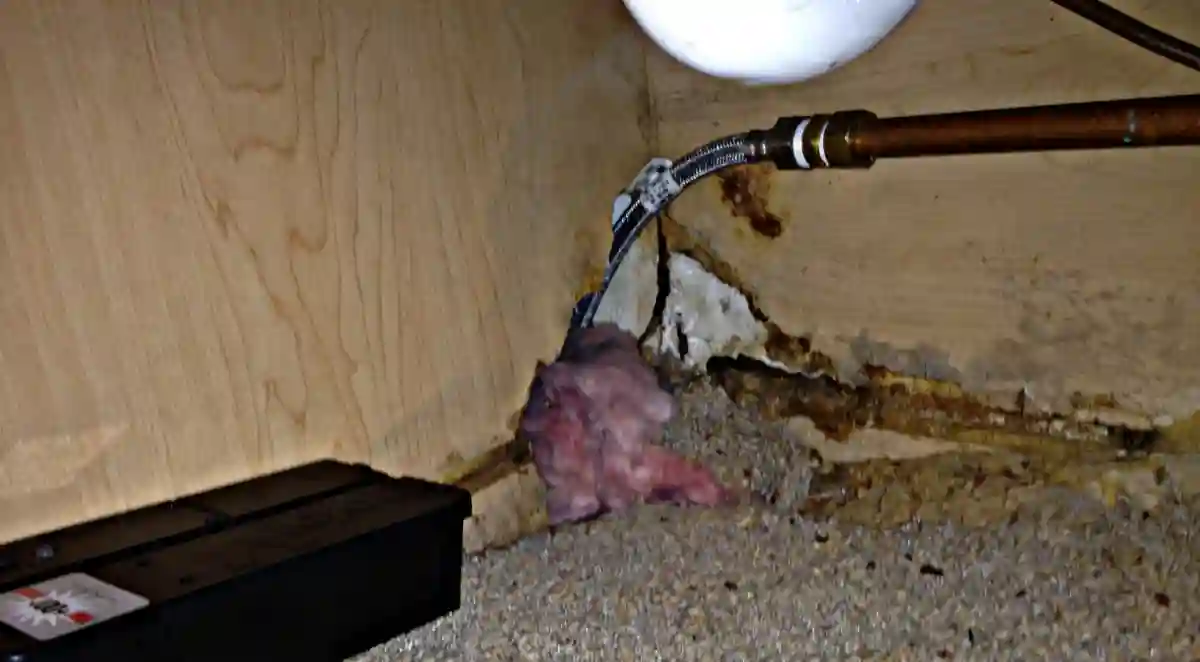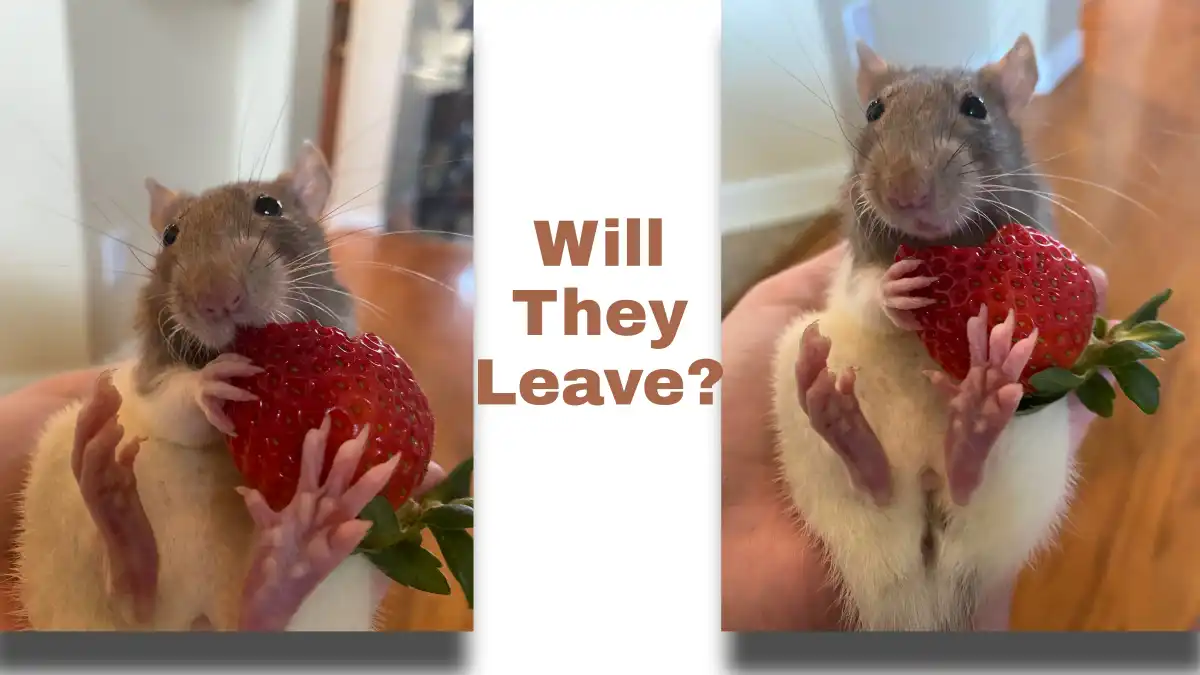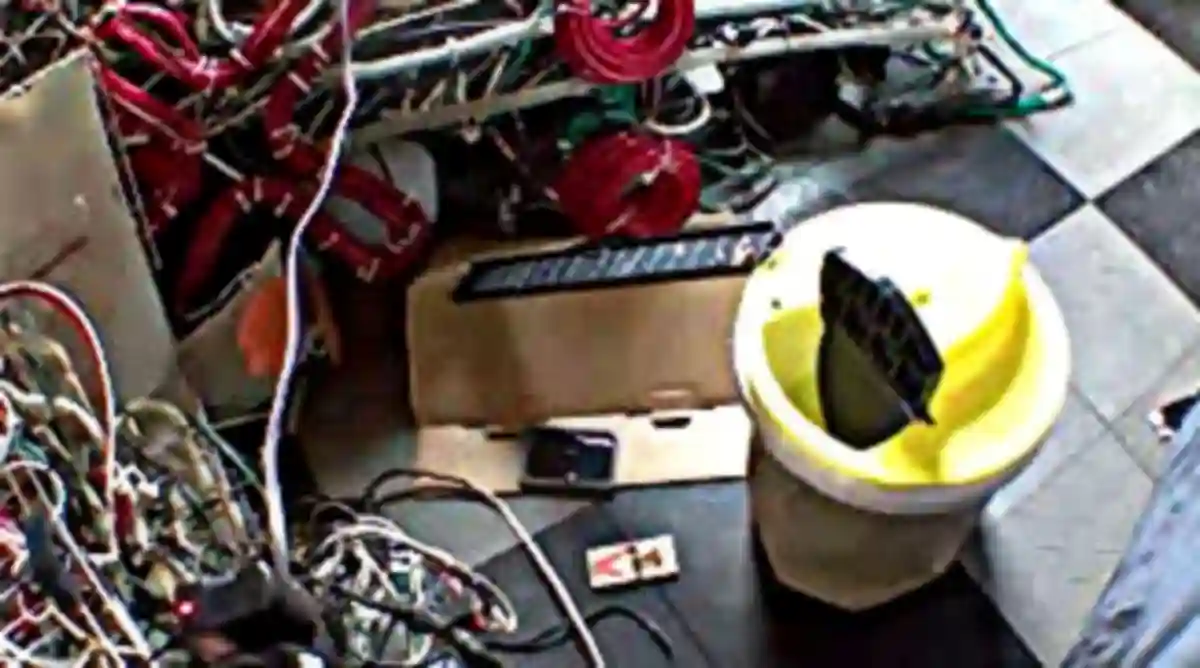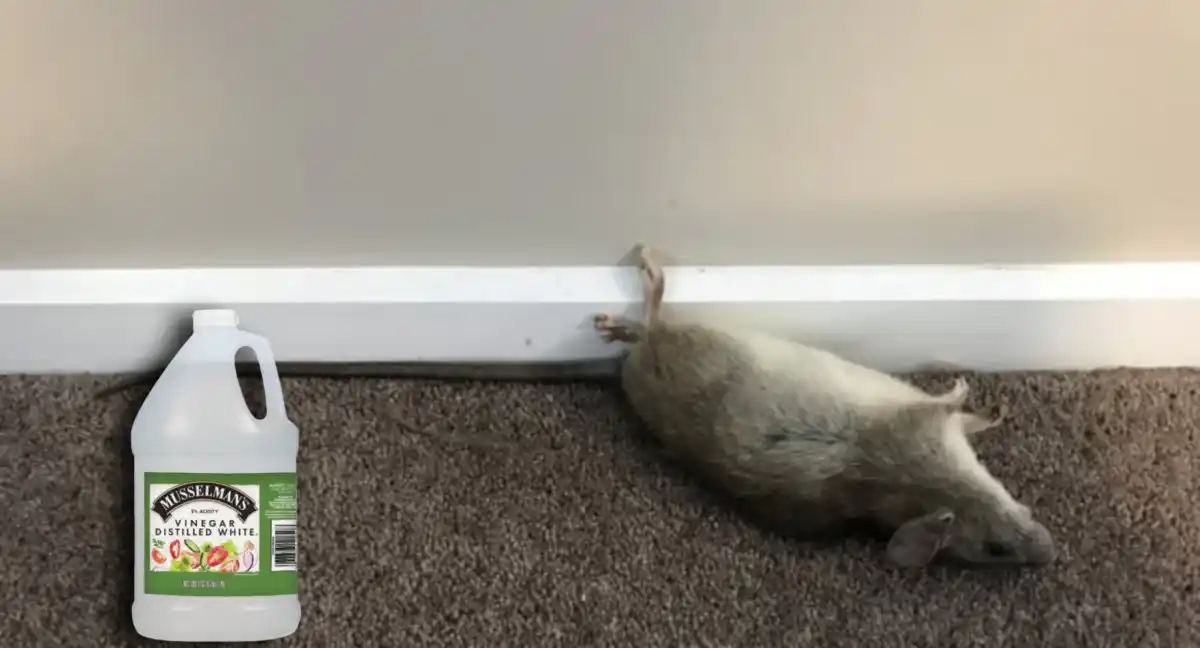The question “Is mice damage covered by insurance?” or put in another way, “Does homeowners insurance cover damages caused by rodents?” can be complex. The coverage of mice damages under homeowners insurance can be unclear and confusing though. As a general rule, however, homeowners insurance does not cover damages caused by mice since it is considered a result of “poor home maintenance”.
The idea is that proper maintenance of your home should prevent or detect damage before it becomes severe, reducing the need for insurance coverage.
However, unforeseen damage caused by mice and other rodents may be covered under certain circumstances. In this post, we will provide examples of situations of mice damage covered by insurance that may or may not apply. That will help you determine if your homeowners insurance will pay for the damage caused by the mice infestation.
Is mice damage covered by insurance?
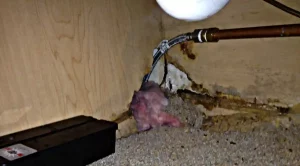
Whether or not mice damage is covered by insurance depends on the specifics of your insurance policy. Some insurance policies may cover damage caused by rodents, while others may not.
As someone with experience, I recommend you review your insurance policy and speak with your insurance provider to determine what types of damage are covered under your policy.
Generally, damages caused by pests or rodents may be excluded from coverage or may be subject to certain limitations or conditions, so it’s important to fully understand your policy and its terms.
When mice damage is caused by neglect
As a homeowner, be proactive to prevent potential damage caused by mice. Most insurance policies will not provide coverage if they perceive that the homeowner has neglected the property or ignored signs of damage.
For example, if you fail to address a mouse digging burrows in your yard, and later discover that the mouse has damaged gas pipes causing a leak, it is likely that your homeowners insurance will not cover the repair costs.
Similarly, ignoring the smell of gas coming from your yard and failing to call the gas company is not only hazardous but also increases the likelihood of repairs not being covered by your insurance. To avoid such scenarios, take prompt and appropriate action to address any potential mice damage to your home.
Another scenario to consider is when mice enter your attic and chew through electrical wires, resulting in a fire that causes damage to your home. If it appears that the mice have been residing in your home for an extended period, you mostly won’t have the mice damage covered by insurance. Thus, your insurance may not cover the damages.
The determination of how long rats can inhabit a home before being detected is subjective, making it difficult to determine what damages will be covered.
What homeowners insurance may cover
You may have mice damage covered by insurance if the circumstance is beyond you.
In this case, if the damage caused by rodents is detected promptly and there is no evidence of neglect or poor maintenance, then your homeowners insurance is more likely to provide coverage for mice damage.
For instance, if you hear overhead noises in your attic and call a pest control company, who later determines that you have a mice infestation, any damages caused by the mice may be covered by your insurance.
Rodents can find their way into our homes in various ways and once they are in, they will likely cause some degree of damage. In such cases, quick action can increase the chances of your insurance covering the damages.
Another scenario that may be covered by homeowners insurance is if mice chew through pipes in your attic, causing flooding. Similarly, if pipes connected to your fire sprinkler system are damaged by mice or other rodents, resulting in any unforeseen situations, your insurance is likely to provide coverage. These events are beyond your control and may be difficult to detect.
However, each case is evaluated on an individual basis, and the specific details will play a role in determining the mice damage covered by insurance.
Ultimately, the coverage provided by your homeowners insurance comes down to the details of the policy. It’s important to thoroughly review your policy and understand all its terms and conditions to avoid unexpected expenses. If there is something in the policy that is not satisfactory, work with your insurance agent to ensure that you have the coverage you need. Pay close attention to the policy clauses and seek clarification from your agent if needed. Some clauses in the fine print may be vague, so it’s crucial to understand their implications. If you live in an area that poses a risk of rodent damage to your home, it’s important to determine if your homeowners insurance covers such damage and what it entails.
How to prevent mice damage to your home
Don’t let the fear of rodent damage take over, as there are proactive measures you can take to prevent an infestation. Consider implementing these concrete steps to help protect your home from the damaging effects of rodents:
1. Seal off entry points
Mice can squeeze through tiny openings, with rats able to fit through holes as small as a quarter, and mice able to fit through holes as small as a dime.
Seal any gaps in the exterior of your home, no matter how small, to prevent them from entering.
2. Act early to prevent damage
Keep an eye out for signs of mice in your home, such as odor, noises, urine stains, grease marks, burrows, gnawing damage, or droppings, so that you can call in a professional exterminator before any significant damage occurs. This way, you wouldn’t have to worry about mice damage covered by insurance in the first place.
3. Set humane traps
Traps can be an effective way to capture and eliminate rodents that enter your home. If you prefer a more humane approach, you can use live traps, which allow you to safely relocate the rats. Glue traps are considered inhumane.
4. Store food in airtight containers
Unprotected food can be a lure for mice and other rodents. To prevent them from coming into your home, store food properly, clean surfaces, and place cereal boxes in durable plastic containers.
If you discover mice in your home, the most effective solution is to call a professional exterminator to remove them.
Do mice pose risks to my family?
Apart from the costly damage to your property, and leaving you at the liberty of your insurance company, mice pose health risks to you and your family.
Rodents generally can transmit diseases to humans both directly and indirectly. They can carry diseases such as hantavirus, salmonellosis, rat-bite fever, Lyme disease, murine typhus, and West Nile virus.
Ensure safety first by keeping your home clean and well-sealed. If you suspect an infestation, contact your local professional immediately.
What type of animal damage is excluded from your homeowners insurance policy?
A homeowners insurance policy may cover physical damage caused by wild animals to your home or other structures on your property, but it typically doesn’t cover damage to your personal belongings.
For instance, if mice cause damage in your garage, your homeowners’ insurance may help pay for repairs to the structure, but damage to items stored inside the garage is unlikely to be covered. This means that if the mice damage a wall, your homeowner’s insurance policy may help pay for new drywall, but if it chews through the wiring on your lawn mower, your policy is unlikely to assist in repairing or replacing it.
